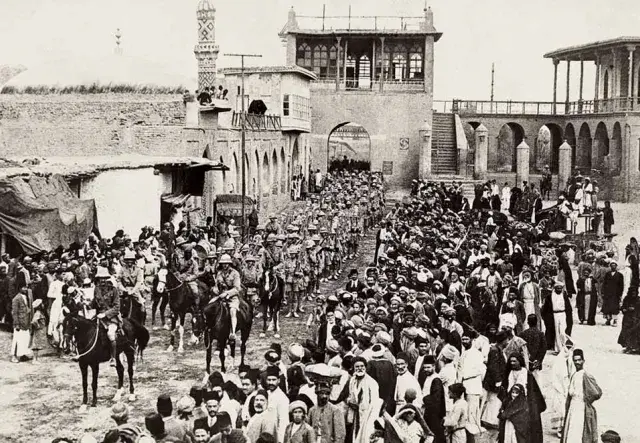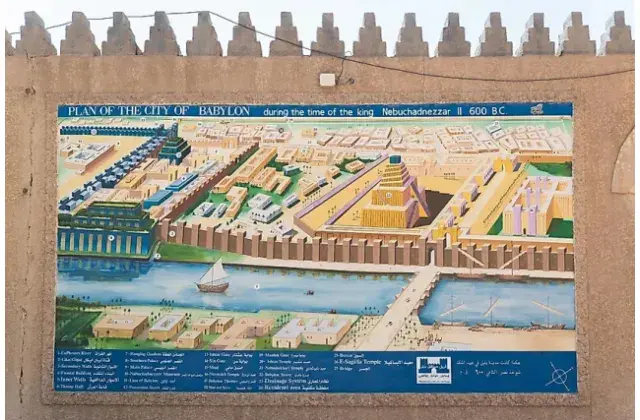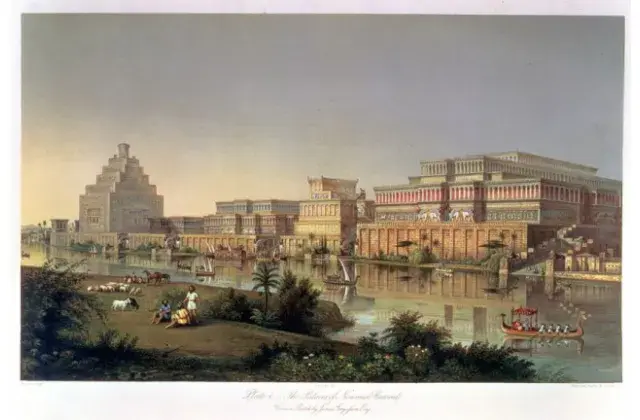Formation of Iraq (1914-1932)

The creation of the Iraqi state emerged from a historical context marked by the end of the Ottoman rule and the aftermath of World War I. After the war, the League of Nations divided the former Ottoman Empire into mandates, assigning them to various colonial powers for administrative control. At the conclusion of World War I, the British forces arrived in Baghdad in 1917 and took control over the three provinces of Baghdad, Basra and Mosul. The League of Nations granted Britain the mandate of Iraq in 1920 at the San Remo Conference; this decision combined the three former Ottoman Vilayets to the modern state of Iraq, marking a pivotal transition from centuries of Ottoman rule to British administration.
During this period, Iraq witnessed many challenges and instability; such as the uprisings against British rule and demanding an autonomous and sovereign state. Establishing a functioning administration consisting of three provinces with diverse ethnicities and religions by a foreign rule proved to be a much more challenging task than expected. By 1920, an uprising swept the country. In the northern Kurdish parts, Sheikh Mahmoud Barzanji headed a number of uprisings beginning in 1919 and the Arab nationalist rebellion erupted in the south in July 1920 which were put down by force with thousands of casualties. The British Foreign Minister held a conference in Cairo in March 1921 with representatives of British administrations in the Middle East, Iraq was represented by First High Commissioner, Percy Cox and the Oriental Secretary to the High Commissioner, Gertrude Bell. Gertrude Bell was an expert in the history and archaeology of Iraq, and she was a key figure in the formation of the Iraqi State. She proposed that the three provinces of Baghdad, Mosul and Basra be united and ruled under an Arab ruler. One of the results of the conference was the adaptation of her proposal for the creation of Iraq, including the three provinces.
In August 1921, the Hashemite Kingdom of Iraq was established, and the British selected Faisal ibn Husayn as the King of Iraq, who was the son of Sharif of Mecca. After the establishment of the kingdom, a group of elite became the major governing figures in Iraq among them were Ja’far Pasha al Askari and Nuri Al-Said, who became the longest running Prime Minister under the Mandate. In the Hashemite Kingdom of Iraq, the king held the symbolic and executive power while the British influence remained substantial, especially during the early years of the kingdom. The pressure from the Iraqi society for an independent Iraq led the British government and the Iraqi government to sign the Anglo-Iraqi Treaty in 1930, a significant step towards Iraqi independence. The treaty recognised more autonomy, allowing for greater self-governance, while giving the British control of Iraq’s foreign affairs. Iraq entered the League of Nations in 1932 and was granted independence as a self-determining nation state. Hence, Iraq formally achieved its independence from the British mandate on October 3, 1932.
This article was written by Renas Babakir and is licensed under CC BY-NC 4.0.






